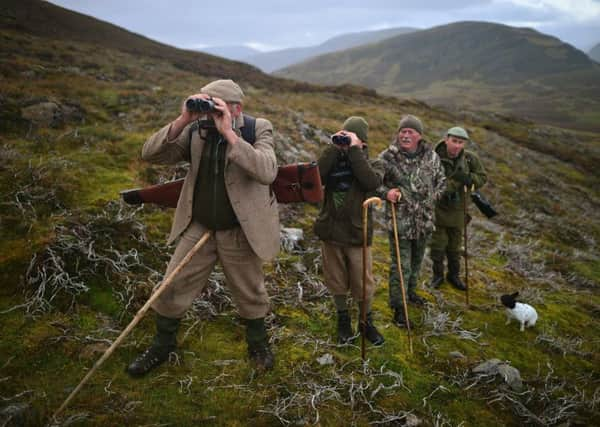Rory Kennedy: How to raise the game for shooting standards


With game still treated with such reverence, it is puzzling that it rarely features in our nation’s shopping trolleys. Historically, virtually all shot game has gone for human consumption, the majority being consumed within the shooting community, and the remaining third bought by game dealers who would collect from shoots. The ultimate destination for much of this game was the Continent, however last season saw an expected slump in this export market.
The current market turmoil has left feathered game virtually worthless, and last season many dealers were charging for uplifting birds or simply refusing stock altogether. This not only means lost revenue for estates but has also created a headache for shoots seeking a market for surplus stock.
Advertisement
Hide AdAdvertisement
Hide AdIn response, many shoots are investing in staff and machinery to provide clients with oven-ready birds to take home after their day’s endeavours. There have also been large-scale initiatives to provide game-based meals to the elderly and other vulnerable groups. One charity, The Country Food Trust, aims to feed over a quarter of a million people this way over the coming year. However, this only partially addresses the current market issues.
The real answer lies with Britain’s shopping habits. While some high-end butcher’s stock game it is virtually absent from supermarkets, who religiously demand uniformity of product and consistency in supply. Even where venison is stocked, invariably it is not provided by the large-scale conservation culls demanded by government agencies but imported from commercially farmed herds in New Zealand.
The potential solutions to the slump in game was addressed as part of a Chiene + Tait-hosted discussion at this year’s Scottish Game Fair in July. The newly created British Game Alliance (BGA) reported how it is striving to provide an enforceable quality assurance scheme to help drive game consumption into the mainstream. The British Association of Shooting and Conservation (BASC), the UK’s largest shooting body, also pointed to the existing Code of Good Shooting Practice, to which BASC act as secretariat. This code sets out standards that govern animal welfare, sporting ethics, safety and environmental standards.
While the wider shooting community is strongly self-policed, with the vast majority adhering to the code, the reality is there are few ramifications for those who are non-compliant. Organisations such as the RSPB, who also contributed to the Scottish Game Fair discussion, raised concerns about highly commercialised shoots which have allegedly diverted from the standards set out in the code, with the spectre of raptor crime never far from the topic.
To address these issues and provide accountability, the BGA has adopted the existing Code of Good Shooting Practice while implementing a robust auditing process, which also covers wider standards covering game handling and environmental management. This approach could finally apply some real teeth to shooting ethics, providing the carrot of a commercially viable market for game, with the stick of a clear mandate to name, shame and ultimately exclude those who refuse to comply.
This model could help food multiples overcome some of the challenges they face in stocking game. The pressure from campaign groups has already led some supermarkets to withdraw game from their shelves. Notably Marks and Spencer made a public U-turn on stocking grouse following direct action from anti-raptor persecution protesters. It would be overly optimistic to expect supermarkets to take up arms in defence of shooting. However, a BGA quality standard guaranteeing sustainable and ethical harvesting may deflect the battle away from the supermarket aisles.
Shooting estates maintain more protected land than all the UK’s conservation bodies put together, providing the equivalent of 16,000 full-time equivalent conservation jobs. Game provides a free range, low-fat offering that can play a role in improving the nation’s diet. Through coordinated action the shooting industry can further improve its image and help game become a common staple in our supermarkets.
Rory Kennedy, head of rural estates at accountants Chiene + Tait